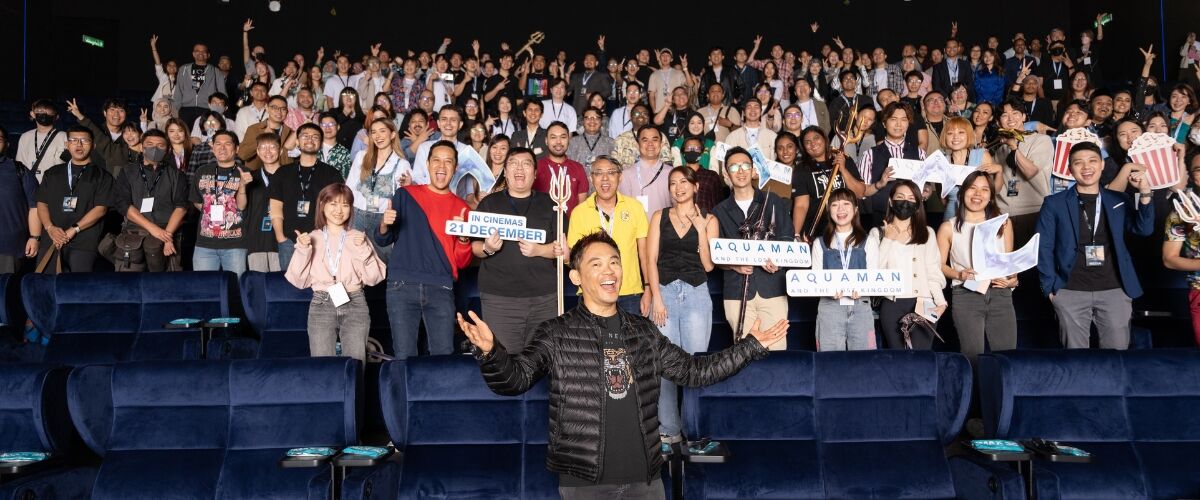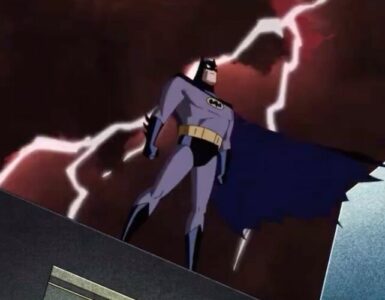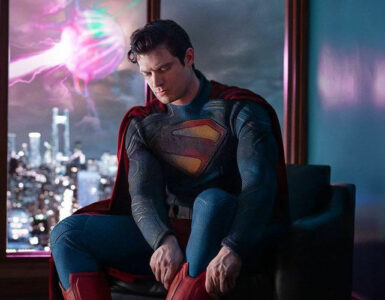Australian filmmaker James Wan might have established his filmmaking career Down Under, but that’s no removing the kampung boy from the Kuching, Sarawak-both native, as the last thing the 46-year-old director did as part of the Kuala Lumpur press tour for his upcoming sequel to 2018’s Aquaman, Aquaman and the Lost Kingdom, was to flip some roti prata for the dozen or so Southeast Asia media in attendance.
The Indian flat bread, also known as roti canai, is a staple food item across the region and has to be made by hand, by folding and flipping the dough on a flat grilling pan, and Wan proved adept at handling his roti prata/canai, to the amusement of those in attendance not used to seeing a successful filmmaker toss food in front of them.
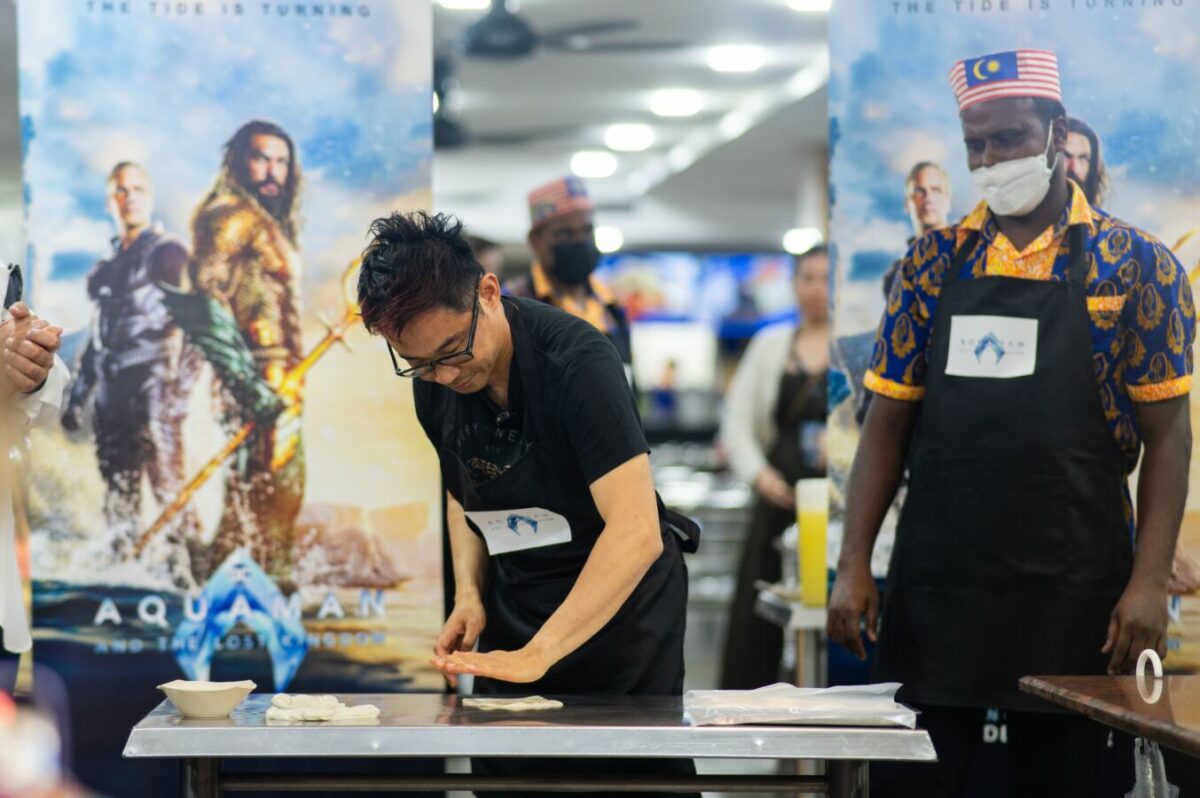
Perhaps the choice of making roti prata is also not lost on the Southeast Asian audience, as the phrase “flipping prata” is often used as a colloquial term to indicate someone backing out on their words or backtracking on their original statement, not unlike the figurative intent of “shifting goalposts”. The Aquaman sequel is, after all, the final film in the beleaguered DC Extended Universe (DCEU) film franchise that started with 2013’s Man of Steel. Following the announced restructuring of Warner Bros. Discovery’s DC Studios in 2022, along with the appointment of James Gunn and Peter Safran as new architects, a reboot of the franchise will take place with Gunn’s Superman: Legacy in 2025.
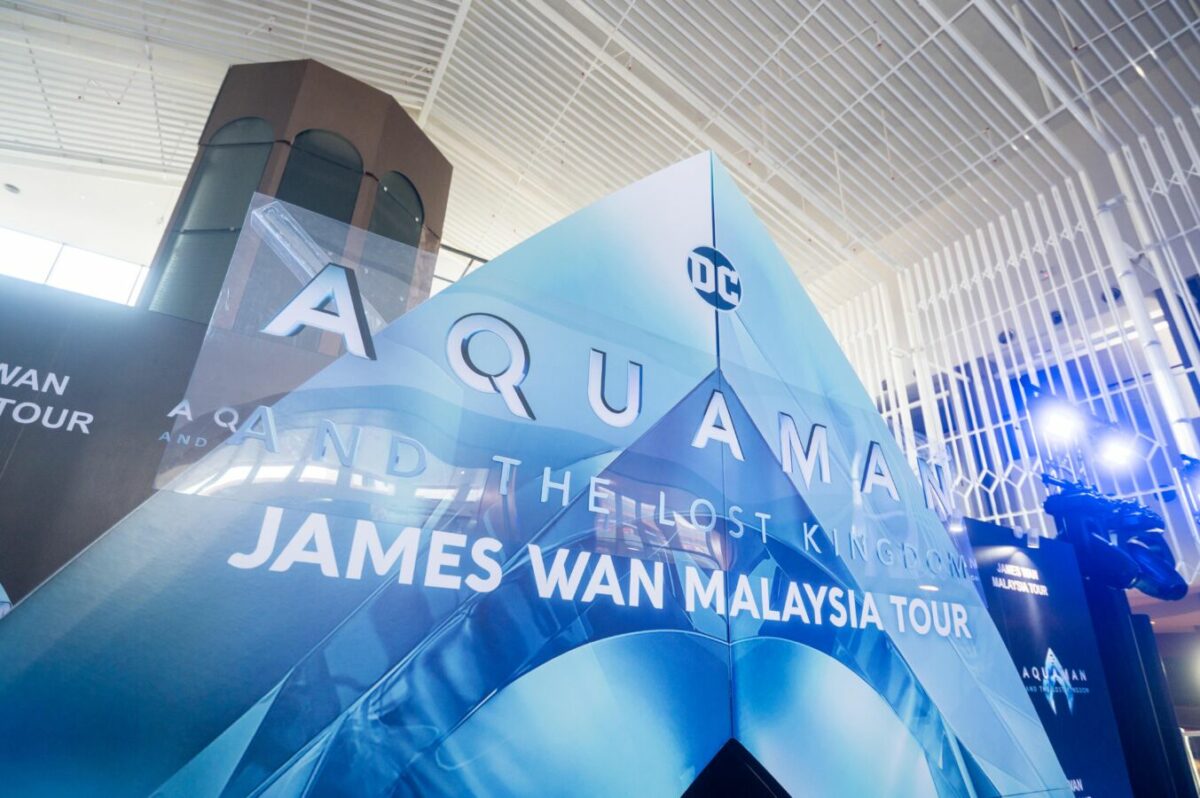
While the current DC Extended Universe has seen cancelled, altered and completed films withdrawn from release across multiple changes in direction and leadership, Wan has carefully avoided the drama associated with this franchise, unlike his fellow contemporary, Zack Snyder. In fact, his Aquaman film is the highest-grossing DCEU film and the highest-grossing film based on a DC Comics character. Instead, the 19th highest-grossing director of all time as of 2021, who made his name in the horror genre with the Saw franchise, followed by Insidious and ultimately, The Conjuring Universe, has emerged from the depths with a clear focus on what he wants with this follow-up to the US$1.152 billion grossing Aquaman film, as this sequel blends two of his passions – horror, and wonder, background drama be damned.
“The ocean is two things. For me, it’s very magical. It’s wonderous. But on the other hand, it can be very scary,” he explains, “I know there are lots of people who are terrified of the ocean, so I tried to play it to both sides.” This duality is a testament to Wan’s skill in creating an immersive cinematic experience that taps into primal fears and fascinations, especially at a time when superhero fatigue is becoming increasingly noticeable in movies, as more of such films are being made and planned for.
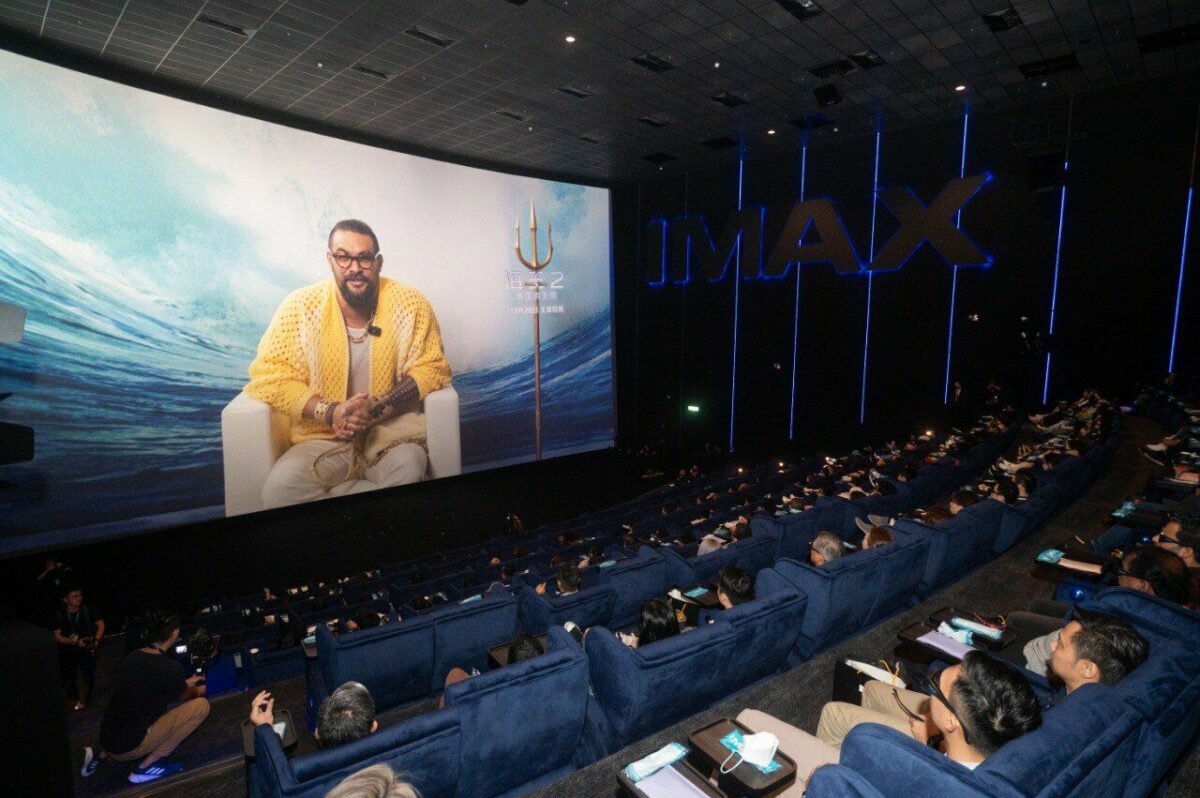
With Aquaman and the Lost Kingdom, Wan returns to the seas with lead Jason Momoa as Aquaman/Arthur Curry, delving into his story from an uncertain hero to the King of Atlantis, alongside returning stars Patrick Wilson (Arthur’s half-brother Orm), Yahya Abdul-Mateen II (David Kane/Black Manta), and Amber Heard (Mera).
“We get to see him finally be the King of Atlantis. He’s also a dad, a husband,” Wan says, emphasising the new dimensions of Aquaman’s character, which marks a significant departure from the first film, where Aquaman was searching for his place in the world.
“And he’s juggling a lot of responsibilities now.”
This journey of reluctant leadership isn’t solitary. Along with Orm, the half-siblings’ intertwined paths are not just about ruling a kingdom but also about personal growth and understanding. “He goes on this journey with his brother, and together they learn about each other, and they learn to be better people,” Wan shares, highlighting the film’s focus on the complex layers of being a hero and a king through the lens of family and responsibility. This concept also isn’t new to Wan, who previously tapped onto it with his successful Furious 7 sequel in the hit The Fast and the Furious franchise, which further highlighted his versatility and demonstrated his skill for high-octane sequences, intricate plotlines, and character-driven stories in a high-stakes environment.
In terms of character development, Wan highlights Aquaman’s struggle with his kingly responsibilities. The director delves into the hero’s reluctance to rule, balancing duties to both Atlantis and the surface world. “He’s still continuing the journey. It’s about finding what it means to be a king, to be a hero,” Wan states, outlining the character’s journey towards accepting the burdens of leadership and making tough choices.
“A lot of times in the movie, it tells us that sometimes you have to do the things that you don’t want to do.”
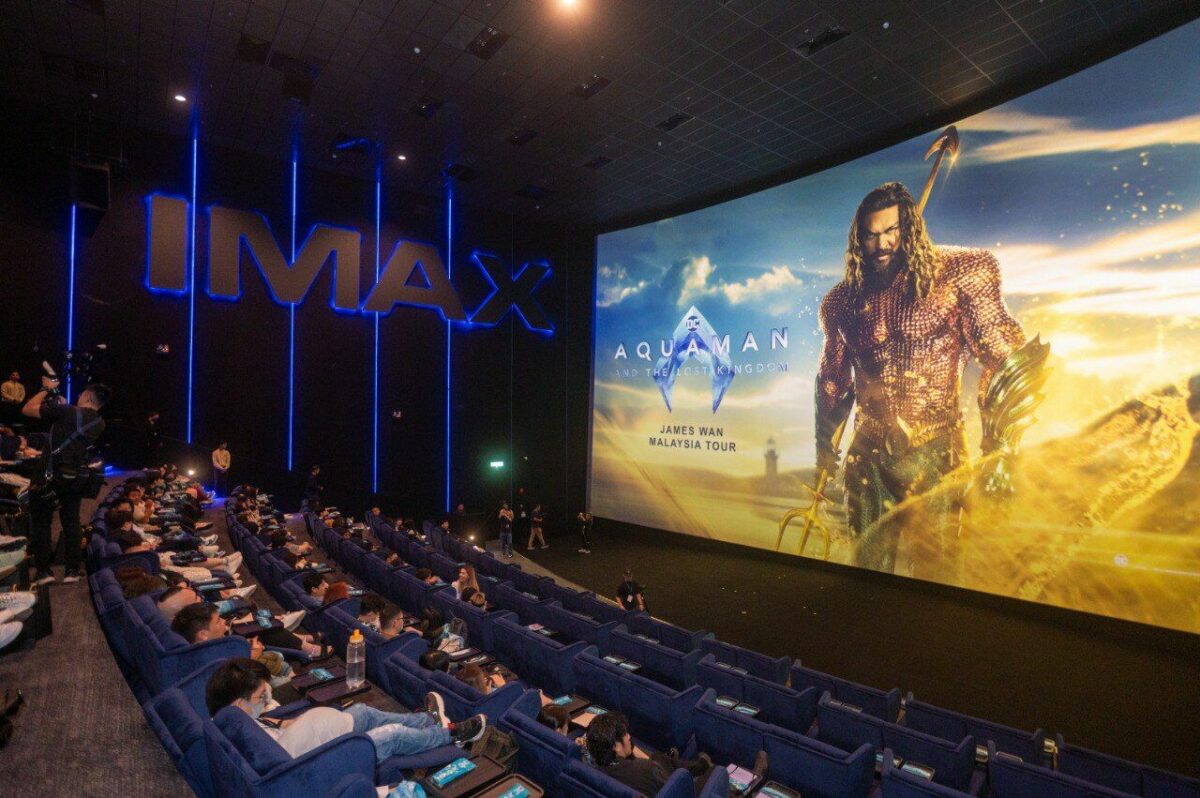
And that is the closest Wan alludes to about the challenges he faced, be it with the changing of guard at DC Studios that necessitated rumoured changes to the script, or the drama surrounding female lead Heard, who went through an embarrassing and revealing legal battle against ex-husband Johnny Depp before production began. The subsequent trial revealed Heard’s revelation that Warner did not want to cast her in the sequel, and that her role, originally rumoured to be removed, had been reduced significantly.
True to his nature, Wan didn’t indicate that he was bothered by the fact that his film is the final chapter in a successful film series, though he did reveal that for this next film, he would return to his roots in the horror genre instead, with smaller, more intimate horror projects after the release of Aquaman and the Lost Kingdom, after the chance to lean “a little bit more into the darker part of storytelling and visual filmmaking” with the new monsters in DC’s upcoming superhero movie.
The technical aspect of filmmaking has also evolved since the first movie five years ago. Wan mentions significant advancements in capturing underwater scenes, making the process less cumbersome for actors. This shift to virtual filmmaking, where actors’ performances are digitally transformed to create realistic underwater movements, showcases Wan’s commitment to technological innovation. “It’s working with the actors, but also mixing in virtual filmmaking at the same time,” he notes.
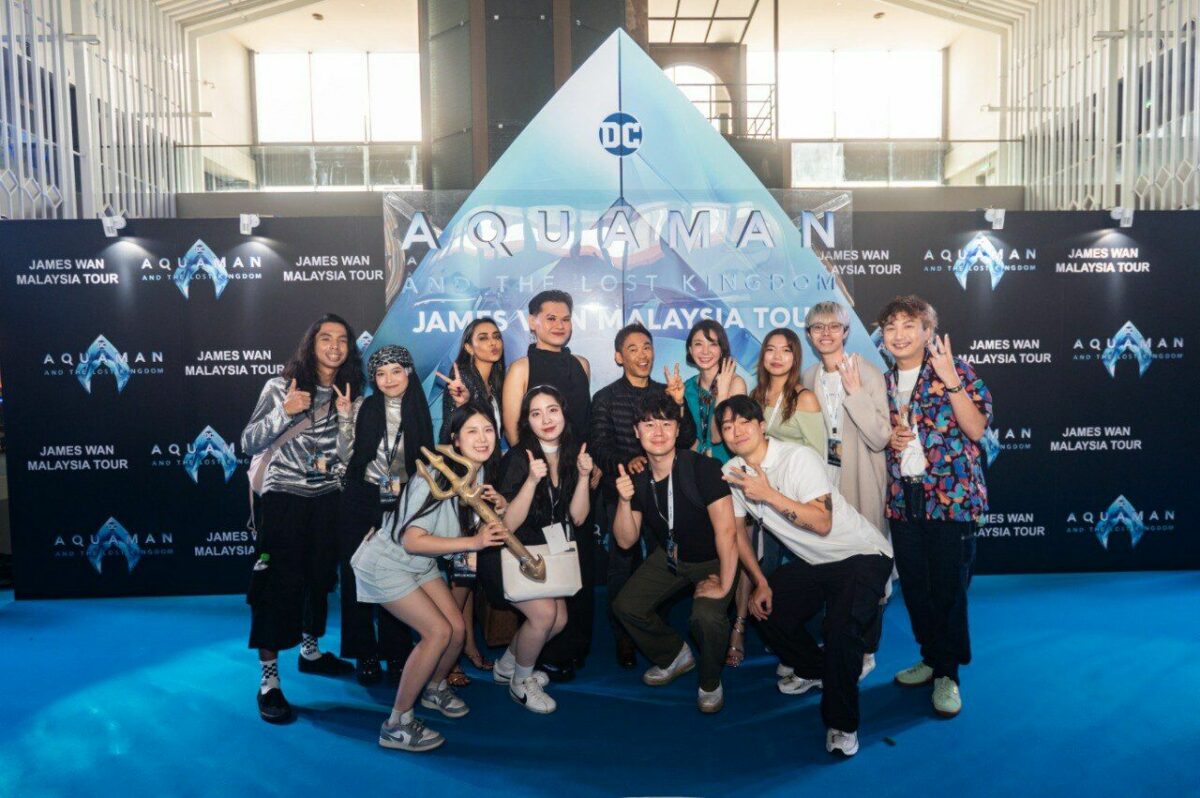
Drawing inspiration from the Silver Age of comics, Wan and screenwriter David Leslie Johnson-McGoldrick (Orphan, The Conjuring 2) wove a narrative rich in comic lore by integrating the complex dynamics of Aquaman’s relationships with his brother, wife and particularly, with his arch nemesis, Black Manta.
“Black Manta has a sort of thirst for revenge. He blames Aquaman for the death of his father,” says Wan, pointing to the film’s deep roots in classic comic narratives, “It’s a good old-fashioned revenge story.”
James Wan’s advice for aspiring superhero filmmakers is to focus on what makes their characters unique. “Don’t try and copy Superman or Batman, or whatever else that we see out there,” he urges them to find inspiration in their distinctiveness rather than emulating established icons. “All good superhero stories have a message. The unique and special ones really kind of cut through.”
Aquaman and the Lost Kingdom is out in theatres on 20 December.

